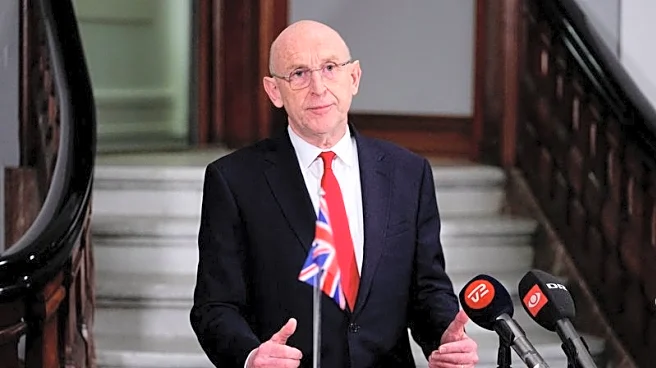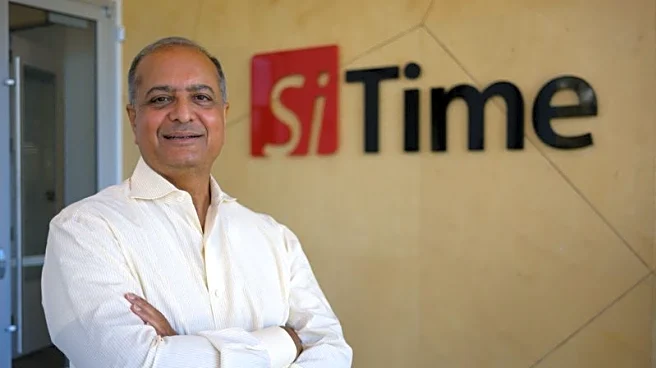What's Happening?
Secretary of State Marco Rubio reportedly told a group of U.S. senators that President Trump's Ukraine peace plan is essentially a 'wish list' of the Russians, rather than a proposal reflecting Washington's positions. This statement was made during the Halifax
International Security Forum in Canada, where Rubio was en route to Geneva for talks on the plan. The peace proposal, which has been widely leaked, includes concessions to Russia that Ukrainian President Volodymyr Zelenskyy has consistently rejected, such as ceding large portions of territory. Despite Rubio's comments, a State Department spokesperson denied the senators' account, labeling it 'blatantly false.' The plan has sparked controversy for appearing to favor Moscow, and Rubio's remarks have added to the confusion surrounding the Trump administration's intentions.
Why It's Important?
The controversy over the Ukraine peace plan underscores significant divisions within U.S. foreign policy circles regarding the approach to the Russia-Ukraine conflict. If the plan is perceived as capitulating to Russian demands, it could weaken U.S. diplomatic standing and embolden Russian aggression. The plan's acceptance by Ukraine is crucial, as it could lead to a reduction in military and intelligence support from the U.S. if Kyiv resists. This situation highlights the delicate balance the U.S. must maintain in supporting Ukraine while negotiating peace. The senators' criticism reflects broader concerns about the ethical and strategic implications of the plan, which could have lasting impacts on U.S.-Russia relations and the geopolitical landscape in Eastern Europe.
What's Next?
Marco Rubio is expected to attend a meeting in Geneva to discuss the peace proposal further. The Trump administration is pushing for Ukraine to accept the plan by next week, which could lead to intensified diplomatic efforts and negotiations. The outcome of these discussions may influence future U.S. foreign policy decisions and the administration's approach to international conflicts. Stakeholders, including political leaders and advocacy groups, will likely continue to voice their opinions, potentially affecting the plan's reception and implementation.
















